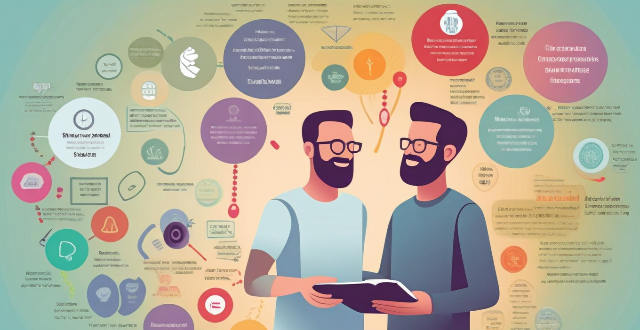Improving memory can be achieved through various science-based strategies, including repetition, visualization, storytelling, mnemonic devices, chunking, maintaining a healthy lifestyle, practicing mindfulness and meditation, engaging in active learning, considering environmental context, and staying mentally active. These methods help move information from short-term to long-term memory, making it easier to recall later. Consistency and patience are crucial for enhancing cognitive functions.

How to Improve Your Memory Using Science-Based Methods
Improving your memory is achievable through science-based methods that are backed by research and proven effective. Here are some strategies you can use:
1. Repetition and Spaced Rehearsal
Repetition is a fundamental principle in memory enhancement. The idea of spaced repetition suggests that information is best remembered when reviewed at increasing intervals over time. This method helps move information from short-term memory to long-term memory.
Key Points:
- Review material shortly after learning it, then again after increasing periods of time.
- Use flashcards or apps like Anki for implementing spaced repetition.
2. Visualization and Association
Visualization involves creating mental images for the information you want to remember. Association links new information with something familiar, making it easier to recall.
Key Points:
- Create vivid, exaggerated images for facts or concepts.
- Associate new information with things you already know well.
3. Storytelling
Weaving information into a narrative helps because our brains are wired to remember stories better than isolated facts.
Key Points:
- Construct a story that incorporates the items you need to remember.
- The more absurd or emotional the story, the better it often sticks.
4. Mnemonic Devices
Mnemonic devices are systems such as acronyms or rhymes that assist in remembering information.
Key Points:
- Use acronyms (like NATO for "North Atlantic Treaty Organization") to remember lists.
- Rhymes or songs can also aid in memorization.
5. Chunking
Chunking is a process where you group individual pieces of information into larger, more manageable chunks.
Key Points:
- Organize numbers or information into clusters rather than trying to remember each piece separately.
- For example, remembering a phone number as three separate groups rather than ten individual digits.
6. Healthy Lifestyle Habits
Your physical health significantly impacts your cognitive abilities, including memory.
Key Points:
- Maintain a balanced diet rich in brain-healthy nutrients.
- Regular exercise improves blood flow and oxygen to the brain.
- Adequate sleep is crucial for memory consolidation.
7. Mindfulness and Meditation
These practices can help reduce stress and improve focus, both of which are beneficial for memory.
Key Points:
- Mindfulness meditation can enhance attention and working memory.
- Stress reduction can protect the hippocampus, a key area for memory.
8. Active Learning
Engage actively with the material you're trying to learn by teaching it to someone else or discussing it.
Key Points:
- Teach the material to reinforce understanding and recall.
- Discuss topics with others to deepen processing and memory retention.
9. Environmental Context
Study in an environment similar to where you will eventually need to recall the information.
Key Points:
- The context can act as a cue for memory recall.
- Try to replicate exam conditions while studying to prepare yourself.
10. Stay Mentally Active
Keep challenging your brain with new activities to maintain neural plasticity.
Key Points:
- Learn a new language or skill.
- Solve puzzles or play brain games.
By incorporating these science-backed methods into your learning routine, you can significantly improve your memory capabilities over time. Remember, consistency and patience are key when it comes to enhancing cognitive functions.